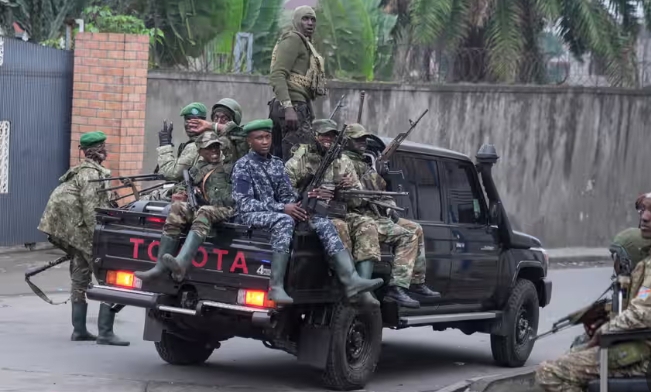DR Congo and Rwanda-backed M23 rebels agree to work toward a truce after Qatar-mediated peace talks, despite deep tensions and stalled progress.
DRC Government and M23 Agree to Halt Fighting, Pursue Truce


The Democratic Republic of the Congo (DRC) and a coalition of militias, including the Rwanda-backed M23 group, have reached an understanding to pursue a truce aimed at ending the prolonged conflict that has ravaged the eastern region of the country since January.
In nearly identical statements released on Wednesday evening, both the DRC government and the Alliance Fleuve Congo (Congo River Alliance) confirmed that their representatives held discussions facilitated by Qatar and agreed to pursue a peaceful resolution to the ongoing hostilities.
“Following frank and constructive discussions, representatives of the Democratic Republic of Congo and the AFC/M23 agreed to work towards concluding a truce that would support the implementation of a ceasefire,” the joint statement read. “By mutual agreement, both parties reaffirm their commitment to an immediate cessation of hostilities, a categorical rejection of hate speech and intimidation, and urge all local communities to respect and uphold these commitments.”
This statement, the first publicly announced joint agreement between the sides, emphasized the constructive nature of the talks and the renewed commitment to halting violence.
Delegations from M23 and the Congolese government convened in Doha earlier this month as part of a fresh mediation initiative by Qatar. This effort follows the Arab state's recent engagement with both Rwanda and the DRC, including a high-level meeting it brokered in March between Congolese President Felix Tshisekedi and Rwandan President Paul Kagame in Doha.
During that meeting, both leaders called for a ceasefire, although no truce was implemented. Since 2021, over half a dozen ceasefires have been agreed upon but ultimately failed to hold.
The current conflict escalated rapidly in January, when M23 launched an offensive against the Congolese military and its allies, quickly seizing control of key cities in eastern DRC, including Goma and Bukavu.
The fighting has resulted in widespread destruction and has severely worsened the humanitarian crisis in the region. Thousands of civilians have been killed, and hundreds of thousands more displaced.
The DRC government, along with the United States and several other nations, has accused Rwanda of supporting M23 to gain access to the area’s abundant natural resources—an allegation Rwanda has consistently denied.
Participants in the Qatar-led negotiations noted that the talks became bogged down by technical disputes. Sources from both parties revealed that proposed “confidence-building measures”—such as the potential release of prisoners held by the Congolese government due to alleged ties to Rwanda and M23—led to heightened tensions and almost derailed the process.
“They are asking for too much,” a Congolese government source told Reuters. “Our justice system is independent. We cannot give in to every whim. Crimes have been committed. Some people must pay.”
On the other side, a representative of the AFC rebel alliance stated that the delegations departed Doha when disagreements over the proposed measures became insurmountable barriers to meaningful progress.
Despite these tensions, diplomats familiar with the situation said that Qatari mediators succeeded in pressuring both parties to issue a joint statement, pledging continued efforts toward establishing a truce.

 বাংলা
বাংলা  Spanish
Spanish  Arabic
Arabic  French
French  Chinese
Chinese 
